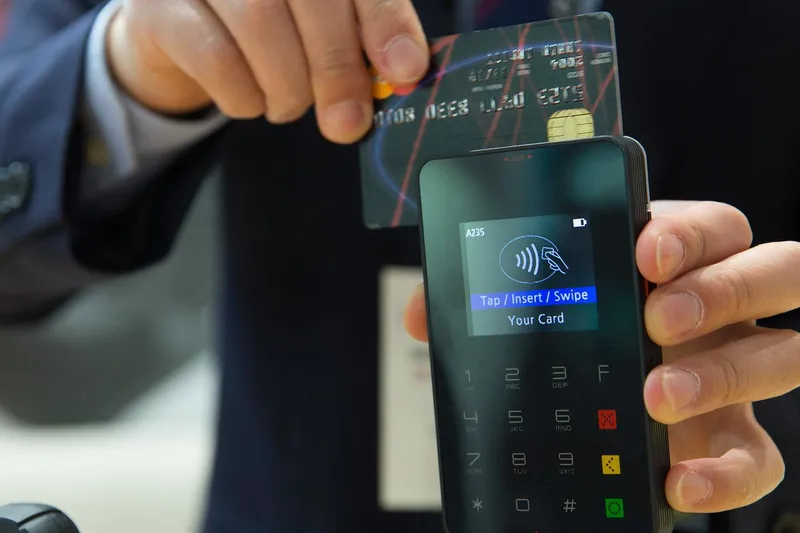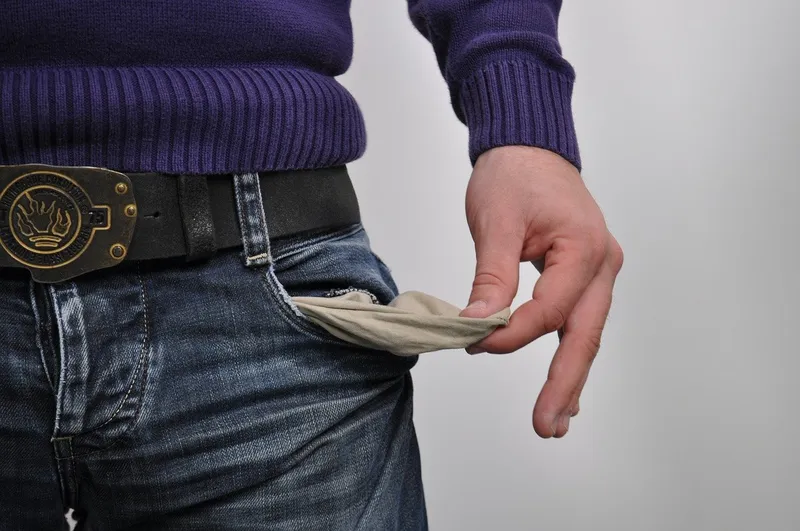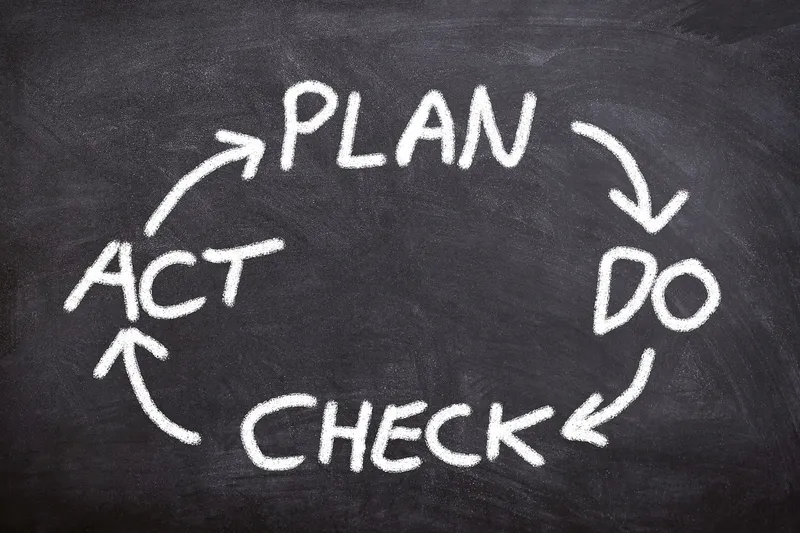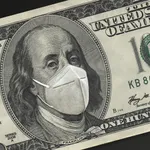5 Reasons You Have A Bad Credit Score
Posted on 30 July, 2022 by MIRANDA BOTTAS in Сredit Repair

Why You Have A Bad Credit Score (and How to Fix It)
It's not uncommon to find yourself trapped in debt at least once in your life. For many of us it seems to happen again and again, and it feels like we'll never get caught up on what we owe, let alone get ahead. Once you get behind on bills, it can be extremely tough to dig your way out out of that debt. You'll have to face difficult decisions about what you should pay and what you can't afford to pay just to keep food on the table and a roof over your head. Nobody likes to be in that position. It's stressful and often overwhelming.
Falling into debt and watching your good or great credit transform into bad credit can be heart-breaking. It takes a lot of work to build up a solid history, but only one wrong move to bring it all crashing down. The best moves you can make are preventative but we all make mistakes. They key here is to not repeat the same mistake twice.
Let's take a look at the top 5 reasons why you have bad credit score and how to fix them. While it's easy to give advice, it's much more difficult to implement changes and prevent these things from happening in the first place, or from happening again in the future. Pay close attention and be positive because there's always something to learn from an experience - whether it's good or bad.
#1. Overspending on Credit Cards

This topic is the one of the most common of them all. When we look at our credit card statement or check the app on our phone and see "Credit Limit", we tend to confuse that with cash - at least to some extent. While we're aware it's credit and while we may have used it responsibly in the past, there usually comes a point where that limit ends up being your owed balance. Using up your whole credit line is a bad practice and can quickly lead to disaster. Don't treat your credit limit like the speed limit... seriously... treat it as an absolute maximum that should never even be approached. Fear it!
How to Fix it:
- Don't use your cards for unnecessary purchases, especially things you want but don't need.
- Avoid intending to pay a balance that you may not actually be able to pay in full.
- Don't make large purchases using credit cards - use them for small purchases instead.
- Save at least 80% of your credit limit for emergency situations and utilize no more than 20%, ever.
#2. Relying on Credit Cards to Pay Your Bills

While this could fall into the area of overspending, it's a bad habit of its own. If you have to use credit to pay your bills, you're only postponing the inevitable. In the end, you'll end up paying more since you'll pay with interest. If you find yourself repeatedly using credit cards to pay your bills because you can't afford the payments, it's a sign that you're living above your means. Either you have too many bills, you're spending wastefully, or your income is too low for your lifestyle. It could be a combination of all three of these! Overspending can become out of control to the point where it ends in complete financial disaster. Many people have experienced this due to the easy access to credit, temptation, and a lack of understanding and self-control.
How to Fix It:
- Balance your budget. Determine what your expenses are and calculate your income. It should be very easy to see the problem. If not, seek the help of someone who can help you budget.
- Get rid of your cards - even if temporarily - for the sake of your credit. This will force you to budget your money more efficiently.
- Lower your bills. Cut luxury expenses, lower the number of cable channels you pay for, spend less money at the bar or dinning out.
- If you just took a vacation or weekend trip but used your credit card to make a late car payment, it's time to prioritize. You know exactly what to do.
#3. Making Late Payments or Becoming Delinquent

This is the number one killer of credit scores. A few 30 or 60 day late payments will wreak more havoc on your credit than you can even imagine. We're talking about dropping hundreds of points sometimes over a single 30-day late payment on your credit history. It all depends on your balances and the credit lines you have but trust us, you never want to begin or get stuck in the cycle of paying late. Once you get there it can be a real struggle to return to normal. In addition, your credit will show those negative marks for years to come.
How to Fix It:
- Make your payments when you have the money, even if it's 3 weeks before they're due. You never know what can happen between now and then.
- If it seems that all of your bills are due on the same date, speak with your creditors and utility companies. Arrange for different monthly due dates to help spread things out and relieve the financial pressure of having to pay everything during the same week or two.
- Never obtain a line of credit or a loan simply because you can't afford your bills. If you're doing this, you're asking for trouble and will probably receive it. Instead, cut your spending.
#4. Relying on Others

Often times we end up in situations where we have a bad credit score because we relied on someone or something else when financing, making a purchase, or taking a personal loan. It's a crucial practice to never rely on someone to pay you on time so that you can pay your own bills. Maybe you're waiting for a tax return, a personal payment from a friend, a client to pay a past-due balance for a job you completed, or simply expecting your family member to make a payment on a vehicle your leased for them in your name. If you don't have the cash in hand or in the bank to cover your expenses, don't risk the future of your credit by relying on others to pay you on time (or at all!).
How To Fix It:
- Don't make loans to people unless you have the disposable income or savings to do so without putting yourself at risk.
- Never finance something for someone who you cannot trust, or if you cannot afford to cover the payment should they default for any reason. Especially when the item is a "want" and not a "need".
- Never lend large sums of money without collateral, a contract, or some type of security. Doing so is a bad move that you will regret. Just ask anyone who has done it.
#5. Failure to Save and be Prepared

While this is always a controversial subject, it's a simple one. Don't buy what you can't afford. Instead, commit to saving a specific percentage of your income each month and pretend that this money does not exist. We say controversial because people often ask "how can I save when I can barely pay my bills?" Well, chances are that for most of us we got ourselves into that situation with bad money habits and unhealthy purchasing practices. The best prevention for this is education.
How to Fix It:
- Be smart, plan, think ahead, and educate yourself. Understand the benefits of financial freedom, even if you're not earning much you can have complete security if you manage your money properly.
- Stop spending on yourself, and start saving. Eliminate all unnecessary purchases. Downsize what you must purchase, and always chose an economical option even if it's less attractive. Once you've accrued a safety blanket you can begin to enjoy things you want to spend on, but not until you have security for the unexpected.
- Speak with someone older and wiser than you who always has money yet doesn't have much income. Ask them to teach you their spending habits. Learn how to cut corners, purchase with intelligence, and save without suffering. Advice can be a big motivator especially when you speak with the right person.
My Credit Score Isn't Bad, But I Want to Improve It
If you don't suffer from bad credit score or delinquent payments, you simply may be struggling to improve your credit - even when it's good! A lot of people find themselves in a position where they have excellent credit use, perfect history, a few cards with good limits, but still cannot secure an auto loan or a home mortgage. These people are on the right track but usually lack the history and diversity of someone with more credit experience, or of an older age and higher income bracket.
What can be done is to acquire a credit line from someone like this by becoming an authorized user on their credit card, which is considered to be a tradeline. You can buy tradelines privately and safely. They are very common among people seeking better credit profiles and are known to work quite well.

While tradelines are a different subject for another day, they're not something to brush off or forget about. They are a very powerful credit tool - perhaps the most powerful of all. If you're interested in learning how it can make a world of difference for you, consider researching authorized user tradelines today to get an understanding of how they function, and why they're a safe and time-tested strategy for success.

PREVIOUS ARTICLE
Leveraging Tradelines When You're New To Credit
NEXT ARTICLE
How to Repair Your Credit After Covid-19
